I'm trying to do a http post request and I need to specify the body as form-data, because the server don't take the request as raw.
This is what I'm doing:
import 'dart:convert';
import 'package:flutter/material.dart';
import 'package:http/http.dart' as http;
void main() => runApp(MyApp());
class MyApp extends StatefulWidget {
@override
_MyAppState createState() => _MyAppState();
}
class _MyAppState extends State<MyApp> {
postTest() async {
final uri = 'https://na57.salesforce.com/services/oauth2/token';
var requestBody = {
'grant_type':'password',
'client_id':'3MVG9dZJodJWITSviqdj3EnW.LrZ81MbuGBqgIxxxdD6u7Mru2NOEs8bHFoFyNw_nVKPhlF2EzDbNYI0rphQL',
'client_secret':'42E131F37E4E05313646E1ED1D3788D76192EBECA7486D15BDDB8408B9726B42',
'username':'example@mail.com.us',
'password':'ABC1234563Af88jesKxPLVirJRW8wXvj3D'
};
http.Response response = await http.post(
uri,
body: json.encode(requestBody),
);
print(response.body);
}
@override
Widget build(BuildContext context) {
return MaterialApp(
home: Container(
child: Center(
child: RaisedButton(
child: Text('Press Here'),
onPressed: (){
postTest();
},
),
),
),
);
}
}
This is the actual response:
{
"error": "unsupported_grant_type",
"error_description": "grant type not supported"
}
This is the expected response:
{
"access_token": "00D0b000000Bb08!AR8AQO.s8mAGXCbwV77FXNLQqc2vtl8g6_16miVbgWlQMsuNHsaf2IGLUwnMVXBOfAj19iznhqhwlPOi4tagvf7FFgiJJgoi",
"instance_url": "https://na57.salesforce.com",
"id": "https://login.salesforce.com/id/00D0b000000Bb08EAC/0050b000005nstiAAA",
"token_type": "Bearer",
"issued_at": "1567993324968",
"signature": "1+Zd/dSh9i7Moh2U0nFJLdXkVHqPlPVU6emwdYzXDPk="
}
You can test this on postman switching the body between raw (you get the actual response) and form-data (you get the expected response)
PS: The headers are temporary headers created by the client tool.

